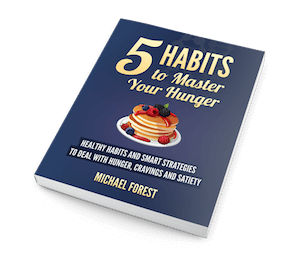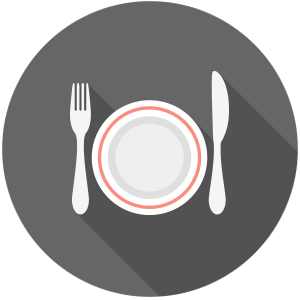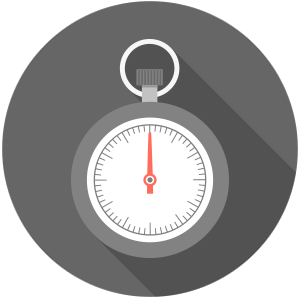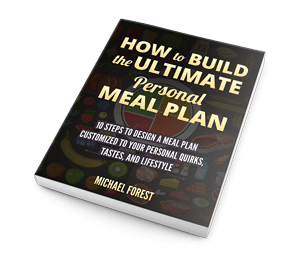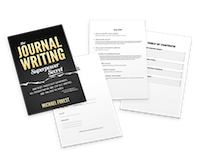
Okay, yes, being in the sweet spot is good: more energy, more productivity, less cravings. That’s all good stuff.
Sometimes, however (e.g., if you’re dieting for prolonged periods), you will experience unwanted hunger, and you’ll know it’s still not quite time for a spike meal.
Bummer, right?
What should you do? Just rely on “willpower”? Sit there and concentrate real hard on not eating? Heck no.
Here are a few more individual tips I use to deal with mental and physical cravings, and to lesson your hunger when it begins to build up.
The fitness world seems to pretty much universally agree that weight training is better for body composition, and too much cardio can interfere with performance in the weight room. This is 100% true. Also, it can be incredibly unhealthy to use cardio to “off-set” diet cheats, and that kind of thing. Never do that.
At the same time, it has its benefits. For me, they’re two-fold. For one, research shows that one of the hidden benefits of cardio is that it decreases hunger in a way that weight training alone doesn’t. [1]
You might think that cardio makes you “work up an appetite,” but it’s just the opposite. It makes you less hungry.
Doing a bit of cardio in the morning can make you less hungry throughout the day. (Note that for cardio I always advocate going outside. You’ll see part of the reason why below.)
Similarly, cardio temporarily increases your cognitive abilities and helps you focus, by affecting those neurotransmitters I mentioned earlier. It also has longer-term benefits in terms of gaining and preventing cognitive decline. It’s even been used to treat ADHD, anxiety, and depression. In short, it does very, very good things for your brain.[2]
Do I think cardio is that good for fat loss? No, not really. It’s okay at best. But if you look at the bigger picture, I think there are benefits.
Vitamin D decreases hunger. So does getting some actual sun fairly early in your day. Research [3] and frankly my own purely anecdotal experience back this up. I’ve found my hunger is always lowest on days where I go for a morning run or a morning walk with my dog.
Also, I kind of suspect that part of the “miraculousness” of the so-called Mediterranean Diet isn’t so much the diet as it is differences in lifestyle and sun exposure. Get a lot of exercise and a lot of sun, and you will just naturally eat fewer calories. Being outside and getting sunlight also increases your mood, so you’ll be less prone to emotional eating.
Oh, and going outside early in the day has been shown to help with your circadian rhythms, meaning you’ll get more sleep, which will decrease your hunger even more (see Tip 5).
See what happens when you start getting a few of these things working together? Cardio in the morning decreases appetite and helps with your sleep later that evening. So does being out in the sun in the morning. So, see tip 3.
Ever played sports outside? Do you feel hungry when you’re doing so? No? There’s a reason for that. Ever wanted ice cream because it’s a really hot, sunny day, but then the exercise it took to get to the ice cream shop, combined with the hot sun, made you actually not really all that hungry for it? Again: there is a reason for this. Use it. It can be very powerful.
(Uh, don’t forget to drink water and wear sunscreen.)
Diet soda is basically all I mean by carbonated drink.
You've probably heard that often “thirst” or de-hydration is mistaken for hunger. This is absolutely true. Keep drinking fluids throughout the day.
However, beyond just “water,” something about the carbonation in diet soda helps “settle” my stomach. It’s hard to describe, but very, very useful. Also, you’re getting in a fair amount of fluids via the diet soda.
And no, the sodium in diet soda isn’t enough to off-set the fact that you’re getting in water when you drink diet soda. (This is especially true if instead of diet soda you just drink carbonated water, which both settles and fills up the stomach in the same way. I just don’t like the taste very much. I’d rather have diet soda or plain regular water.)
Yes, I’m also aware that there are studies showing that diet soda supposedly doesn’t help with dieting, but as far as I can tell, all they’ve really shown is that adding in diet soda alone, without changing anything else, won’t make you lose weight. And it especially won't help if you think “oh I had a diet soda I guess I will have fries with that.”
I still believe it can help with hunger provided you’ve got your actual diet in check, and you don’t use it as a stupid excuse: “Oh, I had a diet coke instead of a regular one, I guess a bag of Twizzlers is okay now! Duhhhh…”
This should probably be its own habit, up there with the other five.
Lack of sleep can increase hunger dramatically.[4] [5] [6] [7] [8]
(And at the same time it decreases metabolism, for a double whammy of bad things. Yikes.)
Sleep is suuuuper important for hunger. This is why some of my tips above have to do with eating in a way that improves or optimizes your sleep. (E.g. Carbs before bed to knock yourself out.)
I still experience this myself. Whether or not I've had a good night’s sleep is probably the number one thing that affects my hunger nowadays.
This is one of those things that’s obvious, but it’s actually super important. There are some strategies you can do [9], but more than anything, you just have commit and make it a priority. Don't stay up late watching TV. Turn off as many lights as you can late in the evening. Get the electronic on/off/status lights in your bedroom either turned off or covered up. Download flux and use it on your computer. Pay attention to Tips 1 and 2 above. Keep a regular schedule.
I have that list of satiating foods above, but really pay attention to what foods satiate you the most. I recently cut down on Kashi Go Lean cereal because although it provided a lot of volume, and had a low number of calories with a fair amount of protein (for a cold breakfast cereal, it was amazing, actually), it still left me far more hungry than things like cream of wheat, brown rice, or potatoes.
I realized that pretty much every time I finished a bowl my first thought was always, “Man, y’know what’d be great right about now? Another whole bowl of cereal. Mmmm.” It was a purely mental craving, but annoying to deal with. So I cut it down.
First, I’m not a doctor, so do some of your own research about caffeine.
Why?
Caffeine is one of the few supplements that has a real, noticeable effect on your system. That’s probably why it gets a bad reputation – unlike 99% of supplements, it actually does something.
Other supplements are “safe” because they don’t do a darn thing. They’re safe the way a placebo is “safe.”
That said, don’t be stupid with caffeine. Start small, set a limit, don’t take it in the evening, and periodically take time off (e.g. don’t take it at all every weekend or every fourth week or something).
Also, be careful if you’re following some of the guidelines above – caffeine can be much more powerful on an empty stomach. This depends on the individual. Oh, and finally: if you take caffeine in the form of coffee, yes, that costs calories, but yes, you can take it outside your feeding window. Chill out. It’s not rocket science.
Don’t just sit there thinking about food. Okay? Just… don’t.
It’s best to have important stuff to do. I know what activities kill time if I ever do get hungry and start thinking about food. What do you do?
Have a “go to.”
…and then, when you are starting to get hungry, actually go to your “go to” activity.
Personally, I find getting in the writing zone helps. Doing other important stuff you have to get done helps. Once you're in the zone, you forget all about the hunger and cravings.
And, to be perfectly honest, sometimes it’s okay to keep “busy” with stuff that isn’t *that* productive. I’m talking stuff you’d usually file under “procrastinating.” That is, yeah, sometimes I keep busy by writing or research or whatever. Sometimes, though, your brain is fried and you don’t feel like working on the hard stuff. In that case, it’s good to have a hobby. Draw. Do woodworking. Work on your car. Play with your dog. Whatever.
I actually paint tiny nerdy hobby miniatures, because I’m a weirdo nerd. Do whatever it is you do for fun. I don’t play video games, but they’re a great time waster that takes your mind off other things. Remember that guy who died because he was so addicted to Starcraft he didn’t eat for several days? Uh. . . don’t be that guy, but realize a bit of gaming (or a similar hobby) can keep you distracted.
Alternatively, realize you can also just… go somewhere. Go out with friends. Go to the mall (hint hint the walking will also help decrease hunger and burn calories). Run an errand. Go play outside. Just don’t do things that trigger your own personal craving cues (maybe a certain restaurant, or the mall if it’s got a Cinnabon or your favourite bakery something).
One of the hidden reasons this works is it gives you a sense of agency, control and self-efficacy.
You “know” that if things get bad, you can “go to” your personal go-to activity.
Simply knowing that you have that as a back-up can be very powerful, especially if you've used that activity in the past to avoid cheating.
In my opinion, all this stuff works best when you gamify it, and make it a challenge to think of new ways to deal with hunger, being more productive, that kind of thing.
This way, it’s always framed in a positive light, and you don’t get down on yourself or start encountering serious body-image issue, which is a horrible rabbit hole, but something a lot of messages in fitness actually encourage.
* * *
Finally, I hope this guide helped you. If it did, do me a favour and write me an email to tell me!
I’d also like to hear more about what you you struggle with, or if there are other challenges similar to this that you face.
Enjoying the Guide?
Get the Revised and Expanded Edition (available now on Amazon)
New Sections
3 Key Principles (...About Your Hunger and Cravings)
"Am I In the 'Sweet Spot' of Hunger?" Assessment Guide
8 Factors Affecting Your Ability to Assess Your Own Hunger
"Do I Need a Cheat Meal?" Assessment Guide
Introduction.
Dealing strategically with hunger, cravings, and metabolic compensation.
Habit 1.
Eat in such a way that you train both your stomach and mind to only be hungry when it’s time to eat.
Habit 2.
Pick (and combine) foods that satiate YOU.
